What is interstitial cystitis?
Interstitial cystitis, also called bladder pain syndrome, is a condition that causes chronic pelvic pain and pressure, along with a frequent need to urinate. To be diagnosed with the condition, your symptoms must last for more than six weeks and have no clear cause, such as an infection.
Interstitial cystitis can be mild or severe, and your symptoms may come and go over time. It can also occur with other conditions that can cause discomfort, such as irritable bowel syndrome and fibromyalgia.
Interstitial cystitis can greatly affect the quality of your life, but there are treatment options available for you to find the relief you need.
Interstitial cystitis symptoms
Interstitial cystitis can cause a range of symptoms that may go away for a while and return. Symptoms include:
- A frequent need to urinate (up to 60 times a day when the condition is severe)
- Pain in the lower abdomen, urethra (the tube that empties urine from the bladder out the body) or vagina
- Painful sex (dyspareunia)
- Pressure in the pelvic area
- An urgent need to urinate
These symptoms can get worse after doing certain exercises or eating certain foods.
When to see a doctor
Make an appointment with your provider if you experience pelvic pain that doesn’t go away or goes away and comes back. Changes in your urination habits, especially those that affect your daily life, are also cause for visiting your provider.
What causes interstitial cystitis?
The exact cause of interstitial cystitis is unknown but may involve multiple factors, such as a defect in the bladder's protective lining, which allows irritants to affect the bladder wall. Other possible but unproven factors include autoimmune reactions, genetics, infections or allergies.
Painful bladder syndrome risk factors
The following factors may contribute to the development of the condition.
- Sex: Women are diagnosed with interstitial cystitis more often than men. Men’s symptoms may mimic interstitial cystitis but are often related to prostatitis.
- Age: Most diagnoses occur in people aged 30 or older.
- Allergic reaction: Mast cells in the bladder may trigger allergic reactions, causing symptoms.
- Autoimmune diseases: Interstitial cystitis may result from the immune system attacking the bladder, mistaking it for a harmful invader.
- Bladder wall damage: Damage to bladder tissue can lead to irritation from substances in urine, weakening the wall and causing ulcers.
- Other conditions: Interstitial cystitis may be linked to other chronic pain disorders, such as irritable bowel syndrome or fibromyalgia.
How is interstitial cystitis diagnosed?
Interstitial cystitis can cause symptoms that resemble those of other conditions, such as urinary tract infections, bladder cancer, diabetes and nerve problems. Your provider will perform an exam and order tests to rule out other conditions.
Medical history and physical exam
Your healthcare provider may ask you to describe your symptoms and keep a bladder diary, noting fluid intake and urine output. During a pelvic exam, they will check your pelvic organs and floor muscles for signs of dysfunction and muscle spasms that might contribute to bladder pain.
Urinalysis
Your provider may order a urinalysis, in which a sample of your urine is tested for bacteria and white or red blood cells. If the test shows no signs of these substances, they can rule out a bladder infection as the cause of your symptoms.
Biopsy
Your provider may also recommend a biopsy. For this procedure, they’ll start by administering anesthesia. Your provider will then use a thin needle to collect a tissue sample from your bladder wall and urethra to rule out other conditions, including bladder cancer.
Cystoscopy
Your provider will use a cystoscope, a thin, lighted tube with an eyepiece, to examine the inside of your bladder and rule out bladder cancer. The cystoscope is gently inserted through your urethra into your bladder. You'll be awake during the procedure, but anesthesia may be needed if a bladder biopsy is also performed.
Cystoscopy with hydrodistention
Your provider may perform a cystoscopy with bladder hydrodistention, which involves stretching your bladder to its maximum capacity by filling it with water. This procedure can reveal ulcers or cracks in the bladder and requires anesthesia. Many people experience temporary relief of interstitial cystitis or bladder pain syndrome symptoms afterward.
Urodynamic testing
With urodynamic testing, your bladder is filled with water and emptied through two small catheters. The goal is to measure bladder pressure and capacity so your provider can determine how much urine your bladder holds (people with interstitial cystitis can’t hold much urine) and whether filling your bladder causes pain.
Interstitial cystitis treatment
There is no cure for interstitial cystitis, but lifestyle changes and medications can help manage symptoms and improve your quality of life. Your provider may need to try a few different treatments before finding the one that works best for you.
Lifestyle changes
Management of interstitial cystitis may also include:
- Diet changes: Dietary changes can help people with interstitial cystitis manage symptoms, as certain foods and beverages could trigger symptoms. Avoid trigger foods like alcohol, caffeine, chocolate, citrus fruits, soda, spicy foods and tomatoes.
- Quit smoking: Smoking can worsen symptoms of interstitial cystitis.
- Exercise: Regular physical activity may help alleviate symptoms.
- Reducing stress: Stress can worsen symptoms of interstitial cystitis. Practicing relaxation and coping techniques or talking to a counselor can help you manage stress and reduce pain and other symptoms.
Physical therapy
Pelvic floor physical therapy relaxes the pelvic floor muscles through stretching, helping to manage symptoms. A physical therapist can show you specific exercises that can heal damaged tissue and provide relief.
Oral medications
Interstitial cystitis medications include:
- Antidepressants: These can help relax the bladder and address pain and inflammation caused by neurochemicals.
- Antihistamines: If your provider suspects your symptoms are caused by inflammation, antihistamines may help.
- Narcotic pain medicines: Codeine and hydrocodone can manage severe discomfort.
- Over-the-counter medications: Over-the-counter nonsteroidal anti-inflammatory drugs (NSAIDs) like ibuprofen or aspirin can help with mild to moderate pain.
Nerve stimulation
Nerve stimulation techniques include:
- Transcutaneous electrical nerve stimulation (TENS): Mild electrical pulses relieve pelvic pain and may reduce urinary frequency. Wires are placed on your lower back or pubic area to deliver pulses to increase blood flow, strengthen bladder muscles or trigger pain-blocking substances.
- Sacral nerve stimulation: A wire near the sacral nerves sends electrical impulses to reduce urinary urgency. If effective, a permanent device may be implanted. This technique primarily addresses urinary symptoms, not pain.
Bladder instillations
Bladder instillations are liquid medications injected directly into the bladder through a catheter. The installations may include a single medication or a combination and are intended to reduce inflammation in your bladder walls. Bladder installation treatments span up to two months, and you may need to receive treatment weekly or every other week.
Surgery and procedures
Procedures that your provider may recommend include:
- Bladder distention: Some people experience temporary symptom relief after a cystoscopy with bladder distention, in which the bladder is stretched with water. If symptoms improve long-term, the procedure may be repeated.
- Botulinum toxin injections: Small doses of botulinum toxin injected directly into the bladder can paralyze bladder muscles, relieving any pain. This treatment may need to be repeated after six to nine months.
Surgery is rarely used to treat interstitial cystitis, as removing the bladder often doesn’t relieve pain and can cause complications. However, for those with severe pain or very limited bladder capacity, surgical options may be considered after other treatments fail:
- Fulguration: Minimally invasive procedure that uses heat to destroy ulcers through the urethra
- Resection: Minimally invasive removal of ulcers through the urethra
- Bladder augmentation: Rarely, a surgeon increases bladder capacity with an intestinal patch, though it doesn’t eliminate pain and may require catheter use
Find specialized care for interstitial cystitis
You can find relief from interstitial cystitis and bladder pain with help from a Baylor Scott & White women’s health provider. We help you get care at a location that fits your needs and offer several locations, including specialized women’s health centers in North and Central Texas.
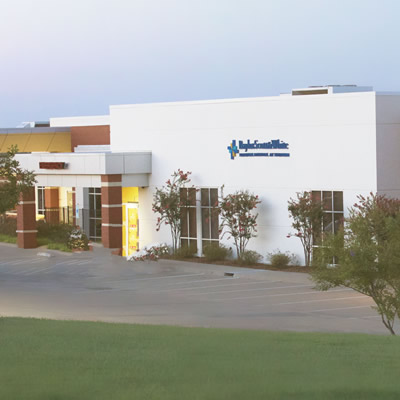
Baylor Scott & White Surgical Hospital - Sherman
3601 N Calais St , Sherman, TX, 75090
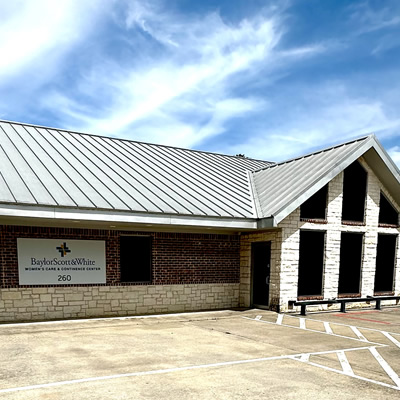
Baylor Scott & White Women's Care & Continence Center - Sherman
260 E Evergreen St , Sherman, TX, 75090
- Monday: 8:30 am - 5:00 pm
- Tuesday: 8:30 am - 5:00 pm
- Wednesday: 8:30 am - 5:00 pm
- Thursday: 8:30 am - 5:00 pm
- Friday: 8:30 am - 5:00 pm
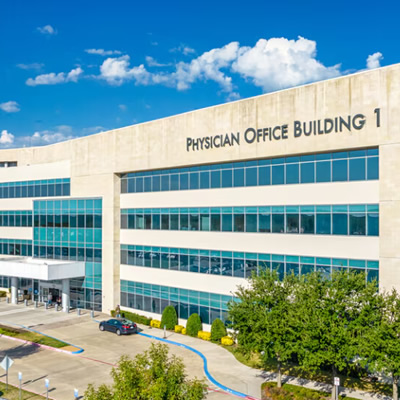
Baylor Scott & White Women's Care & Continence Center - McKinney
5236 W University Dr Ste 2700, McKinney, TX, 75071
- Monday: 8:30 am - 5:00 pm
- Tuesday: 8:30 am - 5:00 pm
- Wednesday: 8:30 am - 5:00 pm
- Thursday: 8:30 am - 5:00 pm
- Friday: 8:30 am - 5:00 pm

Baylor Scott & White Medical Center - McKinney
5252 W University Dr Highway 380 at Lake Forest Drive, McKinney, TX, 75071
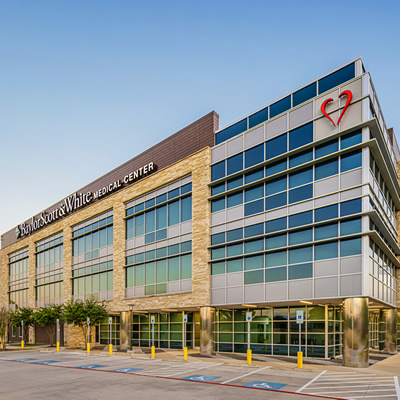
Baylor Scott & White Medical Center - Lake Pointe
6800 Scenic Dr , Rowlett, TX, 75088
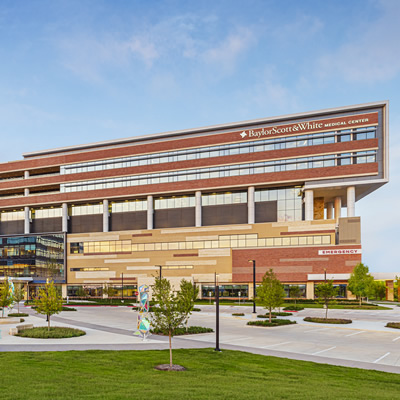
Baylor Scott & White Medical Center - Frisco at PGA Parkway
7600 Better Way , Frisco, TX, 75033
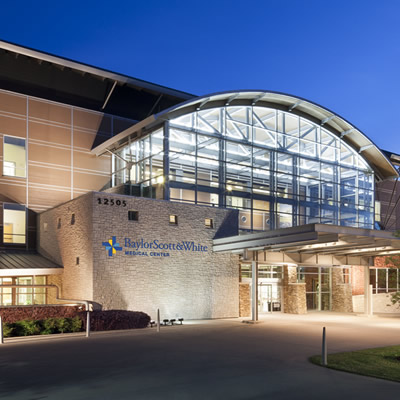
Baylor Scott & White Medical Center - Centennial
12505 Lebanon Rd , Frisco, TX, 75035
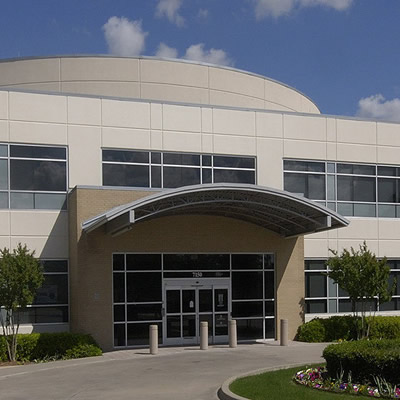
Baylor Scott & White Surgicare - North Garland
7150 N President George Bush Hwy Ste 101, Garland, TX, 75044
- Monday: 6:00 am - 5:00 pm
- Tuesday: 6:00 am - 5:00 pm
- Wednesday: 6:00 am - 5:00 pm
- Thursday: 6:00 am - 5:00 pm
- Friday: 6:00 am - 5:00 pm
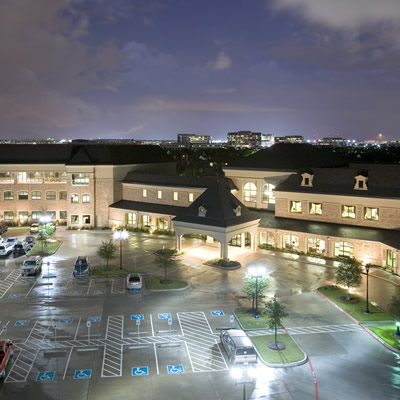
Baylor Scott & White Medical Center - Frisco
5601 Warren Pkwy , Frisco, TX, 75034
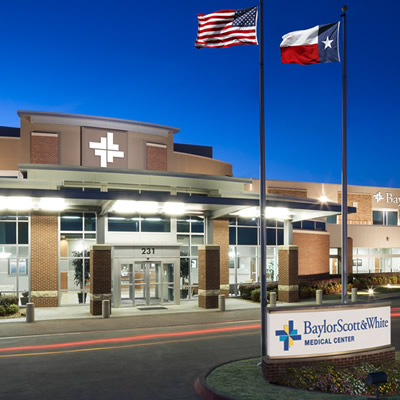
Baylor Scott & White Medical Center - Sunnyvale
231 S Collins Rd , Sunnyvale, TX, 75182
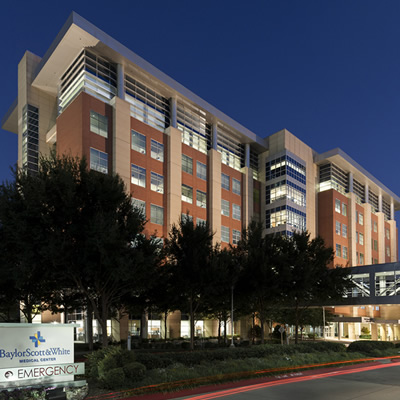
Baylor Scott & White Medical Center - Plano
4700 Alliance Blvd , Plano, TX, 75093
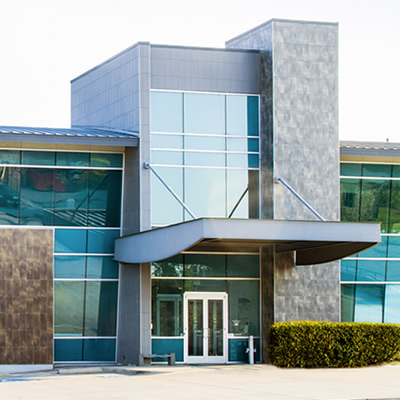
Baylor Scott & White Surgicare - North Dallas
12230 Coit Rd Ste 200, Dallas, TX, 75251
- Monday: 6:00 am - 5:00 pm
- Tuesday: 6:00 am - 5:00 pm
- Wednesday: 6:00 am - 5:00 pm
- Thursday: 6:00 am - 5:00 pm
- Friday: 6:00 am - 5:00 pm

Baylor Scott & White Darlene G. Cass Women's Imaging Center at North Dallas
9101 N Central Expy Ste 200, Dallas, TX, 75231
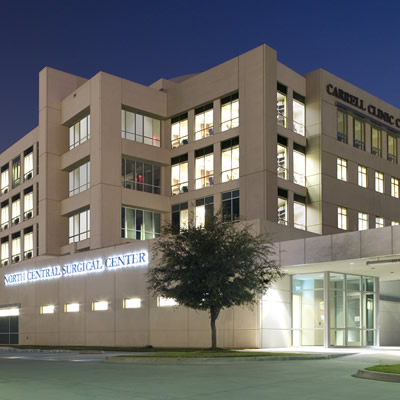
North Central Surgical Center Hospital
9301 N Central Expy Ste 100, Dallas, TX, 75231

Baylor Scott & White Surgicare - Dallas
4020 Junius St , Dallas, TX, 75246
- Monday: 6:00 am - 5:00 pm
- Tuesday: 6:00 am - 5:00 pm
- Wednesday: 6:00 am - 5:00 pm
- Thursday: 6:00 am - 5:00 pm
- Friday: 6:00 am - 5:00 pm

Baylor Scott & White Darlene G. Cass Women's Imaging Center at Junius
3900 Junius St Ste 200, Dallas, TX, 75246
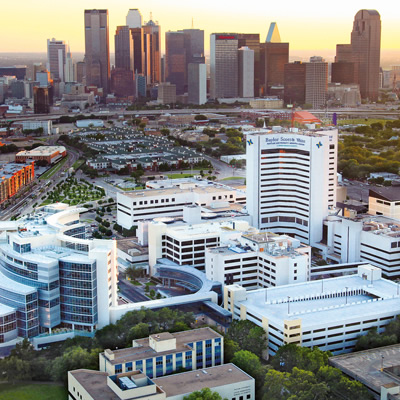
Baylor University Medical Center, part of Baylor Scott & White Health
3500 Gaston Ave , Dallas, TX, 75246
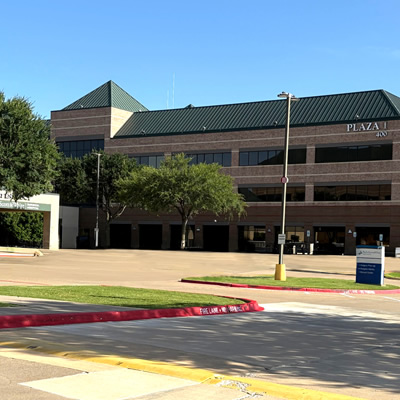
Baylor Scott & White Surgical Hospital - Las Colinas
400 W Lyndon B Johnson Fwy Ste 101, Irving, TX, 75063

Baylor Scott & White Medical Center - Irving
1901 N MacArthur Blvd , Irving, TX, 75061

Baylor Scott & White Medical Center - Grapevine
1650 W College St , Grapevine, TX, 76051
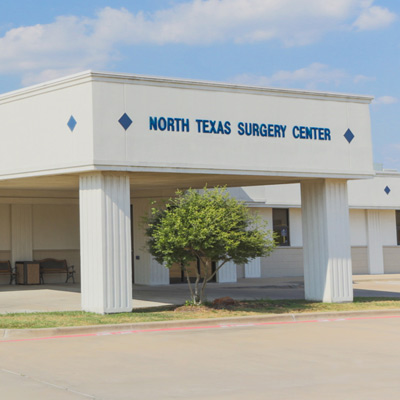
North Texas Surgery Center
7992 W Virginia Dr , Dallas, TX, 75237
- Monday: 6:00 am - 5:00 pm
- Tuesday: 6:00 am - 5:00 pm
- Wednesday: 6:00 am - 5:00 pm
- Thursday: 6:00 am - 5:00 pm
- Friday: 6:00 am - 5:00 pm
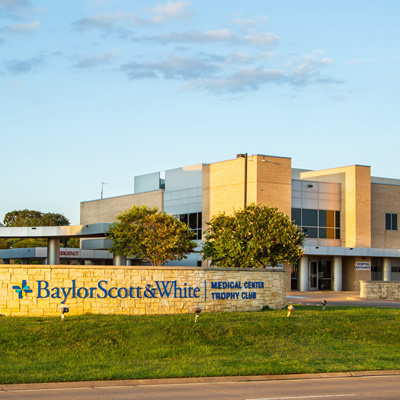
Baylor Scott & White Medical Center - Trophy Club
2850 E State Highway 114 , Trophy Club, TX, 76262

Baylor Scott & White Medical Center - Waxahachie
2400 N Interstate 35E , Waxahachie, TX, 75165
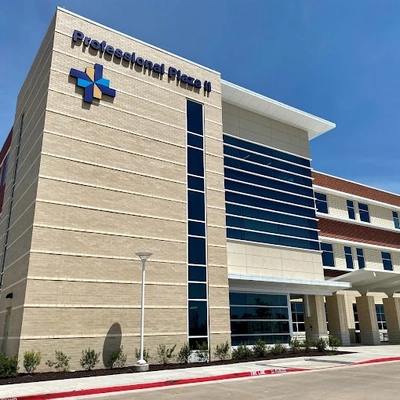
Baylor Scott & White Urology - Waxahachie
2360 N Interstate 35E Ste 310, Waxahachie, TX, 75165
- Monday: 8:00 am - 5:00 pm
- Tuesday: 8:00 am - 5:00 pm
- Wednesday: 8:00 am - 5:00 pm
- Thursday: 8:00 am - 5:00 pm
- Friday: 8:00 am - 5:00 pm

Baylor Scott & White Center for Reconstructive Urology
1101 6th Ave Ste 110, Fort Worth, TX, 76104
- Monday: 8:00 am - 4:30 pm
- Tuesday: 8:00 am - 4:30 pm
- Wednesday: 8:00 am - 4:30 pm
- Thursday: 8:00 am - 4:30 pm
- Friday: 8:00 am - 12:00 pm

Baylor Scott & White Urology Associates - Fort Worth
1101 6th Ave Ste 110, Fort Worth, TX, 76104
- Monday: 8:30 am - 5:00 pm
- Tuesday: 8:30 am - 5:00 pm
- Wednesday: 8:30 am - 5:00 pm
- Thursday: 8:30 am - 5:00 pm
- Friday: 8:30 am - 12:00 pm

Baylor Scott & White All Saints Medical Center - Fort Worth
1400 8th Ave , Fort Worth, TX, 76104
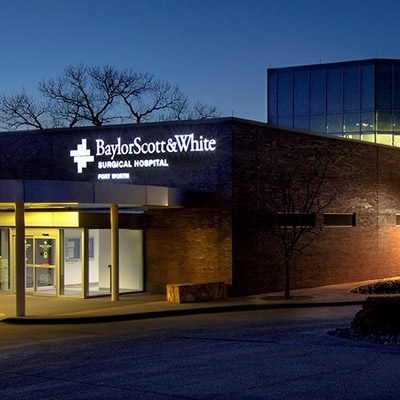
Baylor Scott & White Surgical Hospital - Fort Worth
1800 Park Place Ave , Fort Worth, TX, 76110
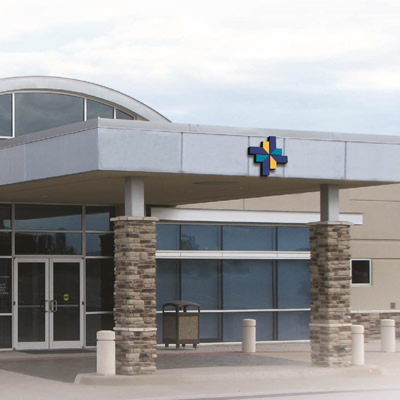
Baylor Scott & White Surgicare - Granbury
1717 Paluxy Rd , Granbury, TX, 76048
- Monday: 7:00 am - 5:00 pm
- Tuesday: 7:00 am - 5:00 pm
- Wednesday: 7:00 am - 5:00 pm
- Thursday: 7:00 am - 5:00 pm
- Friday: 7:00 am - 5:00 pm
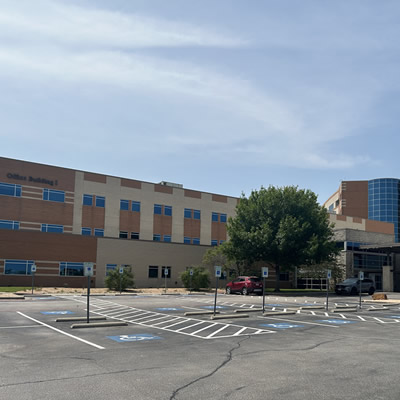
Baylor Scott & White Hillcrest Urology - Waco
50 Hillcrest Medical Blvd Office Building I, Suite 102, Waco, TX, 76712
- Monday: 8:00 am - 5:00 pm
- Tuesday: 8:00 am - 5:00 pm
- Wednesday: 8:00 am - 5:00 pm
- Thursday: 8:00 am - 5:00 pm
- Friday: 8:00 am - 5:00 pm
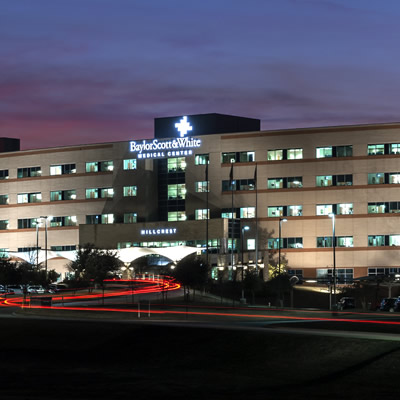
Baylor Scott & White Medical Center - Hillcrest
100 Hillcrest Medical Blvd , Waco, TX, 76712
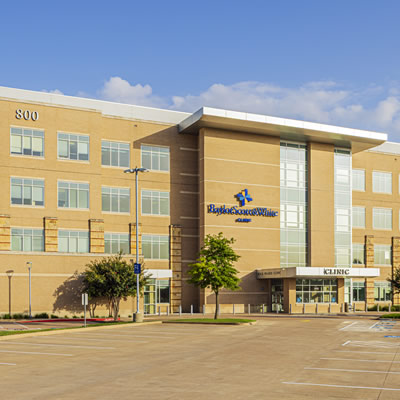
Baylor Scott & White Clinic - College Station Rock Prairie
800 Scott and White Dr , College Station, TX, 77845
- Monday: 7:30 am - 5:00 pm
- Tuesday: 7:30 am - 5:00 pm
- Wednesday: 7:30 am - 5:00 pm
- Thursday: 7:30 am - 5:00 pm
- Friday: 7:30 am - 5:00 pm
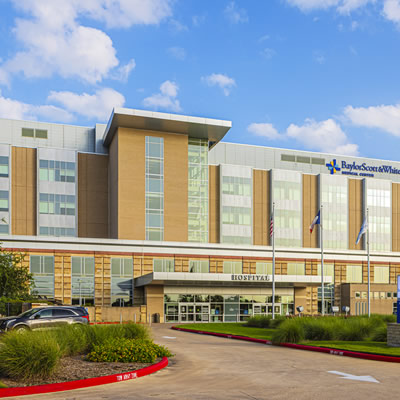
Baylor Scott & White Medical Center - College Station
700 Scott and White Dr , College Station, TX, 77845
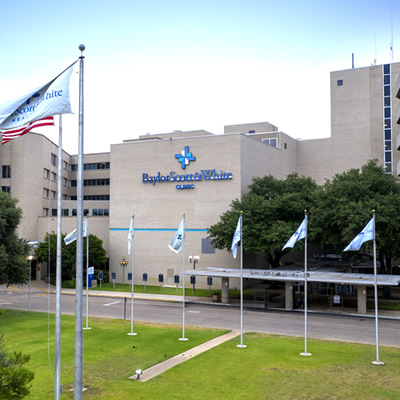
Baylor Scott & White Clinic - Temple
2401 S 31st St , Temple, TX, 76508
- Monday: 8:00 am - 5:00 pm
- Tuesday: 8:00 am - 5:00 pm
- Wednesday: 8:00 am - 5:00 pm
- Thursday: 8:00 am - 5:00 pm
- Friday: 8:00 am - 5:00 pm
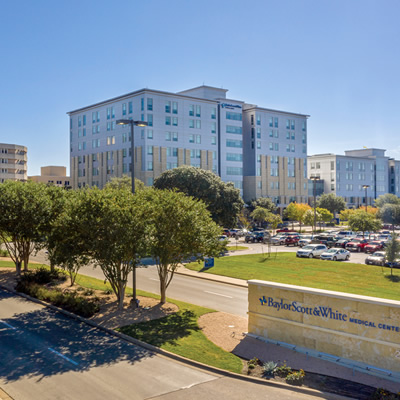
Baylor Scott & White Medical Center - Temple
2401 S 31st St , Temple, TX, 76508
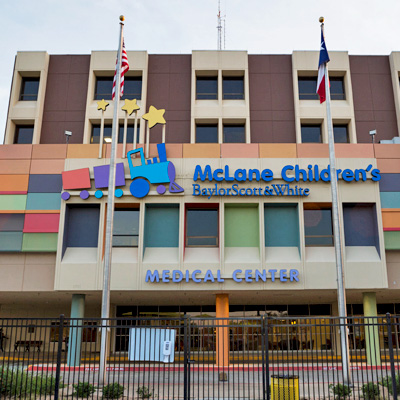
Baylor Scott & White McLane Children's Medical Center - Temple
1901 SW H K Dodgen Loop , Temple, TX, 76502
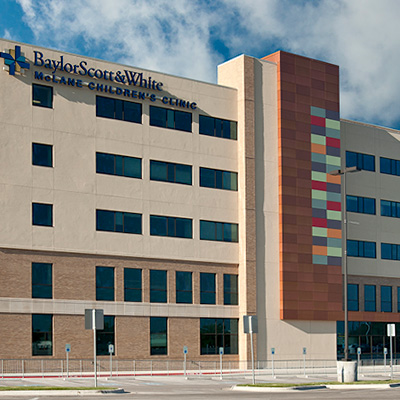
Baylor Scott & White McLane Children's Specialty Clinic - Temple
1901 SW H K Dodgen Loop , Temple, TX, 76502

Baylor Scott & White Clinic - Brenham Day Street
2111 S Day St , Brenham, TX, 77833
- Monday: 8:00 am - 5:00 pm
- Tuesday: 8:00 am - 5:00 pm
- Wednesday: 8:00 am - 5:00 pm
- Thursday: 8:00 am - 5:00 pm
- Friday: 8:00 am - 5:00 pm
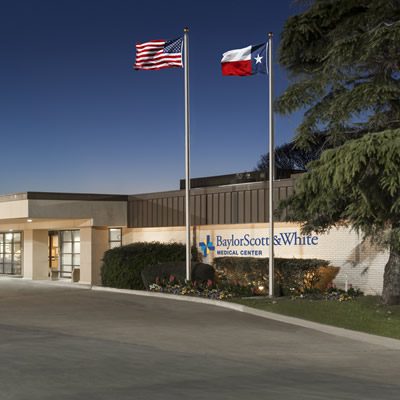
Baylor Scott & White Medical Center - Brenham
700 Medical Pkwy , Brenham, TX, 77833
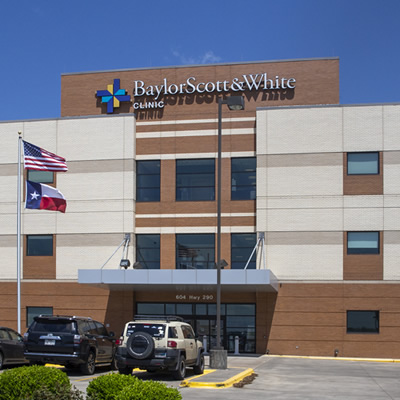
Baylor Scott & White Clinic - Brenham Hwy 290
604 US 290 , Brenham, TX, 77833
- Monday: 7:00 am - 5:00 pm
- Tuesday: 7:00 am - 5:00 pm
- Wednesday: 7:00 am - 5:00 pm
- Thursday: 7:00 am - 7:00 pm
- Friday: 7:00 am - 5:00 pm
- Saturday: 8:00 am - 12:00 pm
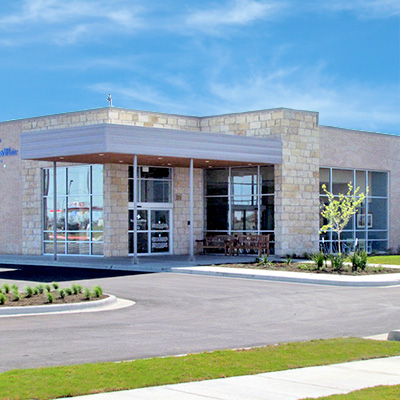
Baylor Scott & White Clinic - Killeen West
4501 S Clear Creek Rd , Killeen, TX, 76549
- Monday: 7:15 am - 5:30 pm
- Tuesday: 7:15 am - 5:30 pm
- Wednesday: 7:15 am - 5:30 pm
- Thursday: 7:15 am - 5:30 pm
- Friday: 7:15 am - 5:30 pm
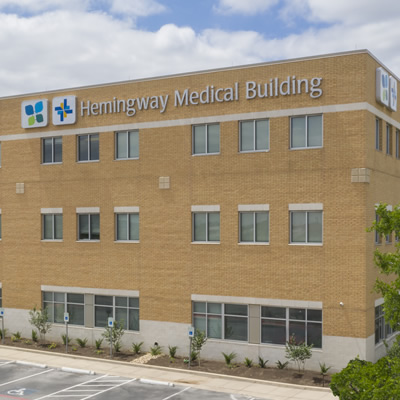
Baylor Scott & White Specialty Clinic - Killeen Hemingway
2405 S Clear Creek Rd , Killeen, TX, 76549
- Monday: 8:00 am - 5:00 pm
- Tuesday: 8:00 am - 5:00 pm
- Wednesday: 8:00 am - 5:00 pm
- Thursday: 8:00 am - 5:00 pm
- Friday: 8:00 am - 5:00 pm
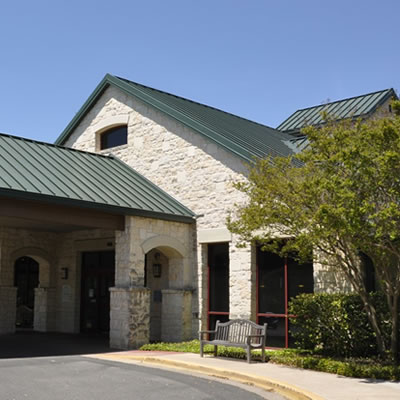
Baylor Scott & White Clinic - Georgetown
4945 Williams Dr , Georgetown, TX, 78633
- Monday: 7:30 am - 5:00 pm
- Tuesday: 7:30 am - 5:00 pm
- Wednesday: 7:30 am - 5:00 pm
- Thursday: 7:30 am - 5:00 pm
- Friday: 7:30 am - 5:00 pm
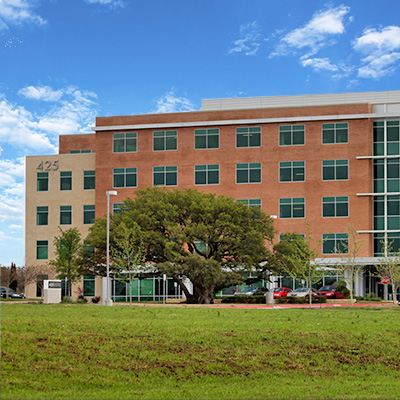
Baylor Scott & White McLane Children's at Baylor Scott & White Clinic - Round Rock 425 University
425 University Blvd Floor 3, Round Rock, TX, 78665
- Monday: 7:00 am - 6:00 pm
- Tuesday: 7:00 am - 6:00 pm
- Wednesday: 7:00 am - 6:00 pm
- Thursday: 7:00 am - 6:00 pm
- Friday: 7:00 am - 6:00 pm

Baylor Scott & White McLane Children's Specialties at Baylor Scott & White Clinic - Round Rock 425 University
425 University Blvd , Round Rock, TX, 78665
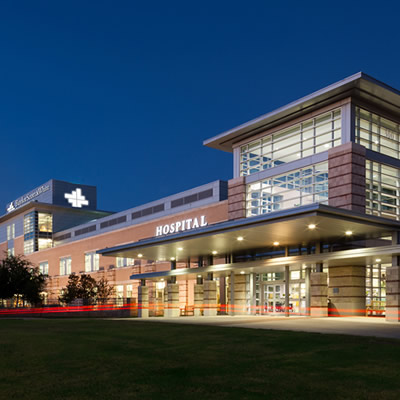
Baylor Scott & White Medical Center - Round Rock
300 University Blvd , Round Rock, TX, 78665
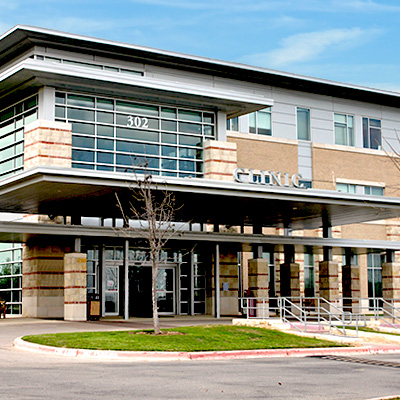
Baylor Scott & White Clinic - Round Rock 302 University
302 University Blvd , Round Rock, TX, 78665
- Monday: 8:00 am - 5:00 pm
- Tuesday: 8:00 am - 5:00 pm
- Wednesday: 8:00 am - 5:00 pm
- Thursday: 8:00 am - 5:00 pm
- Friday: 8:00 am - 5:00 pm
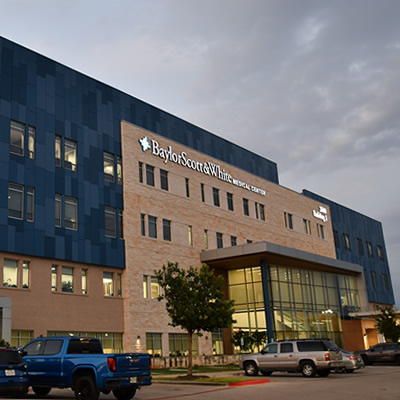
Baylor Scott & White Clinic - Pflugerville Medical Center (Building 1)
2600 E Pflugerville Pkwy Bldg 1, Ste 200, Pflugerville, TX, 78660
- Monday: 8:00 am - 5:00 pm
- Tuesday: 8:00 am - 5:00 pm
- Wednesday: 8:00 am - 5:00 pm
- Thursday: 8:00 am - 5:00 pm
- Friday: 8:00 am - 5:00 pm
- Monday: 7:30 am - 4:00 pm
- Tuesday: 7:30 am - 4:00 pm
- Wednesday: 7:30 am - 4:00 pm
- Thursday: 7:30 am - 4:00 pm
- Friday: 7:30 am - 4:00 pm
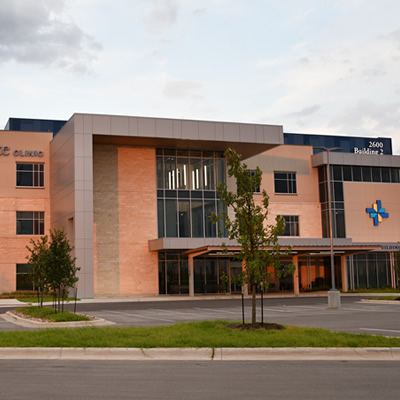
Baylor Scott & White Clinic - Pflugerville Medical Center Building 2
2600 E Pflugerville Pkwy Building 2, Pflugerville, TX, 78660
- Monday: 8:00 am - 5:00 pm
- Tuesday: 8:00 am - 5:00 pm
- Wednesday: 8:00 am - 5:00 pm
- Thursday: 8:00 am - 5:00 pm
- Friday: 8:00 am - 5:00 pm
- Monday: 8:00 am - 4:00 pm
- Tuesday: 8:00 am - 4:00 pm
- Wednesday: 8:00 am - 4:00 pm
- Thursday: 8:00 am - 4:00 pm
- Friday: 8:00 am - 4:00 pm
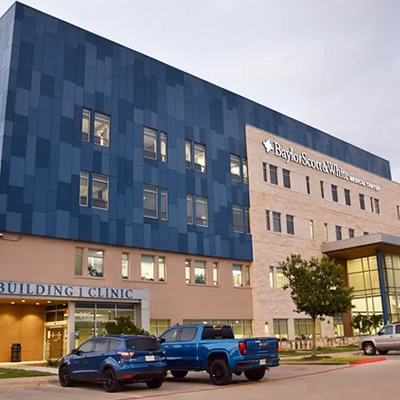
Baylor Scott & White Medical Center - Pflugerville (Building 1)
2600 E Pflugerville Pkwy Bldg 1, Ste 100, Pflugerville, TX, 78660
How we reviewed this page
-
February 11, 2025
